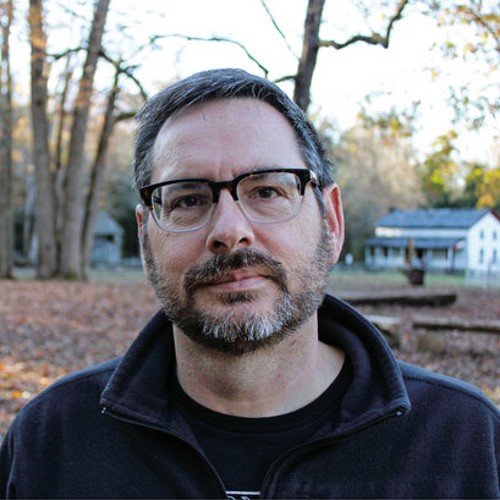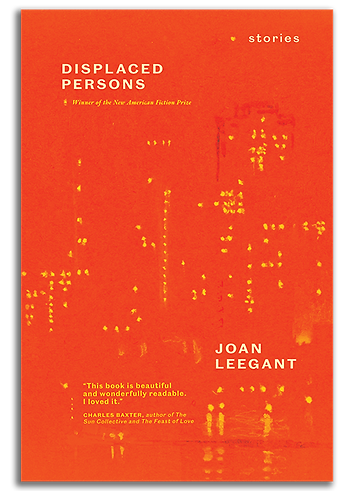
In our morning reading: an interview with Tracy O’Neill, Aaron Turner recommends music, and more.
Daryl Gregory on Short Books, Big Ideas, and the History of “Revelator”

Daryl Gregory is not a writer who likes to repeat himself. The paperback edition of his novel Revelator was published earlier this year, and tells a story that involves familial secrets, violent clashes between bootleggers, and a godlike being that lives in isolation. It’s a compelling read, and it’s also a huge stylistic shift from his earlier novel Spoonbenders, about a family of psychics. That, in turn, was wildly different from the horror-tinged We Are All Completely Fine; what they have in common are compelling characters, complex themes, and a haunting quality that’s hard to shake. I spoke with Gregory about his latest book, his thoughts on genre, and what’s next for him.
Sunday Stories: “Camera Obscura”

Camera Obscura
by Amy DeBellis
The party was held in a small apartment building that looked, from the street, like it might be about to topple over in any direction. “The leaning tower of pizza,” Jade said, because they had just passed a pizza place on the same block, but Will looked at her blankly. She thought of explaining, and then decided against it.
The elevator was broken, so they walked up the stairs, which smelled like sawdust and paint. “Are you sure we’re at the right place?” Jade asked more than once. She was aware of how annoying she sounded yet was helpless to stop herself, because she had drilled into her brain years ago that the only thing worse than being annoying was being too quiet.
VCO: Chapter 25

Chapter 25
One million square feet of space can hold a little over 17 American football fields. Joselyn heard back from Hans that we were approved to purchase ten million square feet of undeveloped land for database warehouses.
One issue: before DPZ gets absorbed into PPL on paper (we’ve already made the change on the site) we have to sort out the compensation for our initial business partner: Marcus.
Unplanned Beauty in Dirty Waters: Brad Vogel’s “Find Me In The Feral Pockets”

Brad Vogel’s Find Me in the Feral Pockets is a Whitmanic yawp for Gowanus. Often known as Lavender Lake, Gowanus became infamous as a dumping ground for local industries in the late 20th century and for the Mafia, if you believe the urban legends told of it. Now, it’s a Superfund site with a patron saint poet. Vogel’s poems come to life with glimpses of subway tracks above and the looming skyscrapers in the distance. The work ranges from pondering and playful to dark and depressive, as the voice takes careful stock of the strange hypnotic beauty of Gowanus, whether it’s roaming the streets on foot or floating down the canal via canoe. In “Black Mayonnaise” we see “Sick rainbows swirl/ Deep secrets bubble up/ Past percolating at low tide/ -And here I stand/ Bulkheaded, reeking/ Ancient timbers bowed/ A sponge garden/ With a runoff problem.” The stanza sets in motion so much of the volume’s energy; this place leads the voice deeper into itself. “I envy you, Gowanus/ We envy you, Gowanus/ You have an EPA/ To rid you of your PCBs/ A Superfund/ For your black mayonnaise/ Would that I could/ Would that we would/ Dredge ours up/ Omissions and failings/ Dredge ours up/ Half lives and toxic words/ Mix sludge with mountains/ With concrete/ To stabilize/ And cart it all away/ To some other state.” Poems like this one show the reciprocal relationship between speaker and setting—a longing to dredge up and cart away the toxins of the past to find some other state of being, to be strangely healed by regenerative powers of nature even in a state of pollution.
Presenting an Excerpt From Darrin Doyle’s “Let Gravity Seize the Dead”

We’re pleased to present an excerpt from Darrin Doyle’s new book Let Gravity Seize the Dead. This book follows a family who, in 2007, move into a secluded cabin and begin to detect evidence of another presence there — one with a connection to the cabin’s inhabitants a century earlier. Sara Lippman called the book “a moody, pitch dark novella that will linger in my nightmares for quite some time.” Read on for a glimpse inside.
Joan Leegant on Writing “Displaced Persons”

I met Joan Leegant the first time I attended a writer’s residency—in 2017—at the Virginia Center for the Creative Arts. I was excited to read Leegant’s new short story collection, Displaced Persons, winner of the New American Fiction Prize, set half in Israel and half in America. Aside from elegant and accomplished writing, what grabbed me about these stories, especially the ones set in Israel, especially now, is the window into ordinary life. Israel has a large immigrant and refugee population; many people who live there have been displaced at one point or another. Meeting the characters in these stories, finding their humor and humanity on the page, was uplifting.
Writer/Artist Caza on the Genesis of “Arkadi and the Lost Tribe”

An ongoing Kickstarter campaign seeks to collect the full scope of a stunning work of science fiction comics.Beginning in 1989, writer/artist Caza has been telling the story of Arkadi and the Lost Titan. Publisher Humanoids describes it as “a visually stunning tableaux that blends imaginative landscapes with intricate detail, and classic sci-fi adventure with spiritual and metaphysical exploration.” Regarding the book, Mark Russell called it “the sort of imagination-bending science fiction comic you rarely see.”
